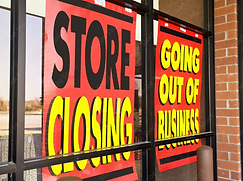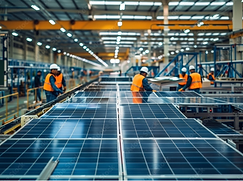
What's in the Bill & Why It's So Dangerous
Congress is rushing through a bill that would roll back the very tax credits that power solar, wind, EVs, and storage across the U.S. If passed as-is, it would:
01
Eliminate or phase out critical clean energy tax credits, including those for solar, wind, energy storage, and electric vehicles.
These credits have been essential in making clean energy viable for families, farms, and businesses—reducing upfront costs and spurring job creation. Without them, clean energy becomes less competitive, less accessible, and far more expensive, especially for working families and rural communities.
02
Force projects to begin construction within just 60 days for tax credits to be applied.
Up until now, companies in the clean energy sector have been operating with an 8-year runway under the Inflation Reduction Act—a timeline that enabled long-term hiring, strategic development, and scalable job creation. Replacing this with a rushed 60-day window creates chaos in project planning and will likely result in mass layoffs. It risks collapsing clean energy job pipelines and contributing to an already unstable labor market at a time when we should be expanding opportunity, not eliminating it.
03
Undermine transferability, limiting investment access and hurting groups like farmers who rely on these credits to offset their tax liability.
For many in agriculture, clean energy investments provide a critical path to reduce operating costs and gain long-term financial stability. These changes could effectively cut them off from participating in the energy economy.
04
Pull the rug out from developers, investors, and communities who trusted the 8-year timeline in the Inflation Reduction Act.
Families who hoped to reduce their utility costs and gain more energy independence by installing solar on their homes will now face steep costs with no meaningful tax incentive. This shift makes it significantly harder for average households to afford solar—and pushes clean energy further out of reach for the very people it was meant to empower.

This bill is not a clean repeal.
It's a sabotage of American energy progress.
This Isn't Politics. It's People.

Families
Higher utility bills, fewer affordable energy options, and limited access to clean power threaten household budgets. Without tax credits, upfront costs block families from long-term savings and energy independence.

Small Businesses
Lost projects, disrupted cash flow, and rising costs put pressure on small business growth. Without tax credits, many face halted expansion, cutbacks, or closure—especially in rural communities.

Workers
Over 1 million clean energy jobs are at risk across solar, EVs, and storage (American Clean Power Association). Reversing support threatens one of America’s fastest-growing job sectors.

The Economy
The clean energy sector employed 8.1 million Americans in 2022 (U.S. DOE). Pulling tax credits could stall billions in investment and weaken U.S. momentum in energy innovation.

